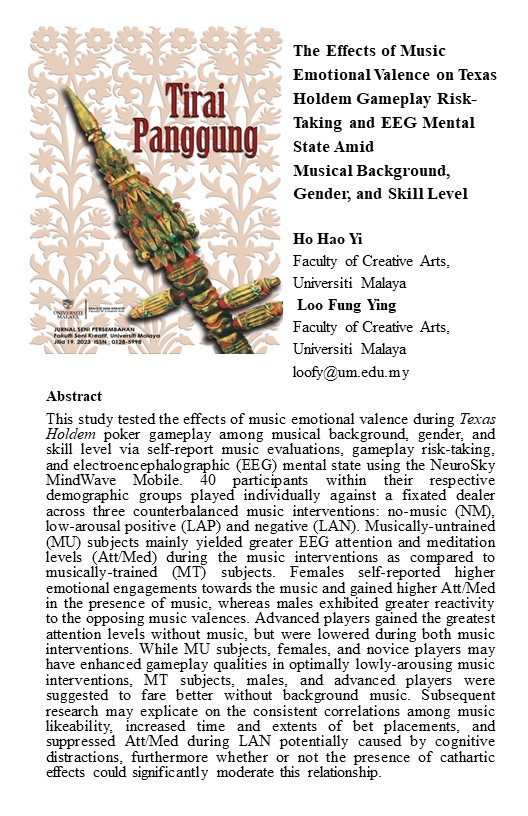The Effects of Music Emotional Valence on Texas Holdem Gameplay Risk-Taking and EEG Mental State Amid Musical Background, Gender, and Skill Level
Main Article Content
Abstract
This study tested the effects of music emotional valence during Texas Holdem poker gameplay among musical background, gender, and skill level via self-report music evaluations, gameplay risk-taking, and electroencephalographic (EEG) mental state using the NeuroSky MindWave Mobile. 40 participants within their respective demographic groups played individually against a fixated dealer across three counterbalanced music interventions: no-music (NM), low-arousal positive (LAP) and negative (LAN). Musically-untrained (MU) subjects mainly yielded greater EEG attention and meditation levels (Att/Med) during the music interventions as compared to musically-trained (MT) subjects. Females self-reported higher emotional engagements towards the music and gained higher Att/Med in the presence of music, whereas males exhibited greater reactivity to the opposing music valences. Advanced players gained the greatest attention levels without music, but were lowered during both music interventions. While MU subjects, females, and novice players may have enhanced gameplay qualities in optimally lowly-arousing music interventions, MT subjects, males, and advanced players were suggested to fare better without background music. Subsequent research may explicate on the consistent correlations among music likeability, increased time and extents of bet placements, and suppressed Att/Med during LAN potentially caused by cognitive distractions, furthermore whether or not the presence of cathartic effects could significantly moderate this relationship.

